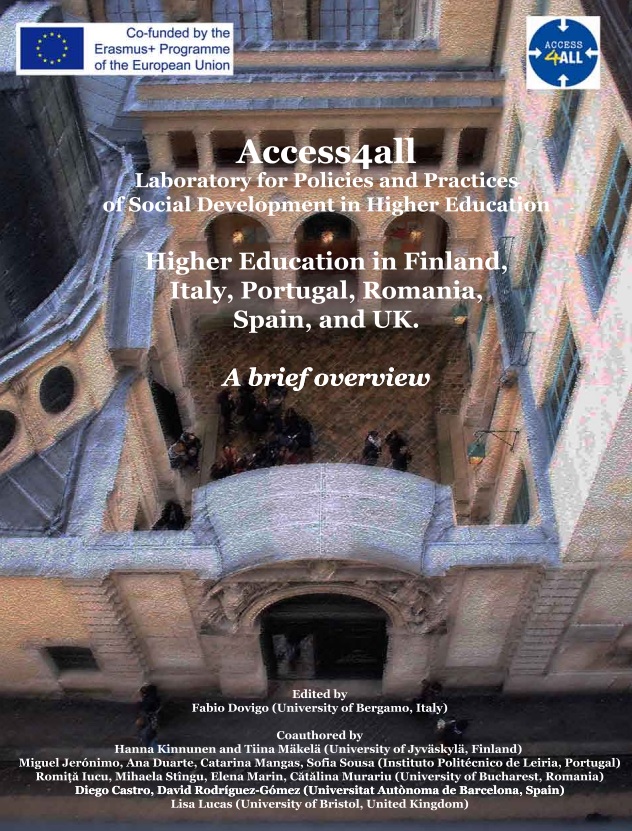Higher Education in Finland, Italy, Portugal, Romania, Spain, and UK. A brief overview

The Access4All project focuses on the diversity topic by promoting the educational and social inclusion of underrepresented groups as well as of non-traditional learners, thereby aiming to satisfy one of the main priorities being called for, i.e. the improvement of the capacities of organisations active in the fields of education, training and youth, notably in the areas of strategic development, quality of learning provision, equity and inclusion, qualitative and targeted activities for specific groups. This way, Access 4All clearly addresses one of the important features of the Erasmus+ programme: “Promoting equity and inclusion by facilitating the access to learners with disadvantaged backgrounds and fewer opportunities compared to their peers” (Erasmus+ Programme Guide, 2014: 13). This main aim is concentrating on 4 specific objectives: (1) to establish a map with the institutional policies for attending to vulnerable groups in relation to academic access and success; (2) to establish guidelines to be implemented by higher educa - tion organisations to promote initiatives aimed to encourage the access and successful development of students who are under-represented in universities; (3) to co-create strategies and measures promoting the access, permanence (and suc - cess) of vulnerable students and non-traditional learners at university; (4) to create a laboratory for the creation of innova - tive and flexible strategies in order to promote social commit - ment of Higher Education institutions in relation with the most vulnerable student groups.
Face to the lack of comparable data on diversity and underrepresented groups in higher education reported by research, we think it is important to take advantage from the Access4All project to offer an overview of the current situation of higher education in the six countries participating to the project (Fin - land, Italy, Portugal, Romania, Spain, and UK), with a special concern on the issues related to the social dimension which is at the core of the proposal. Even though, for the above men - tioned reasons, not all data are fully available and compara - ble, we believe that such an overview can contribute to im - prove our knowledge about the stat of art of access and partici - pation of non-traditional students in higher institutions of the countries, so enabling us to develop analytical comprehension that would help the development of good practices to be imple - mented in the following stages of the project.